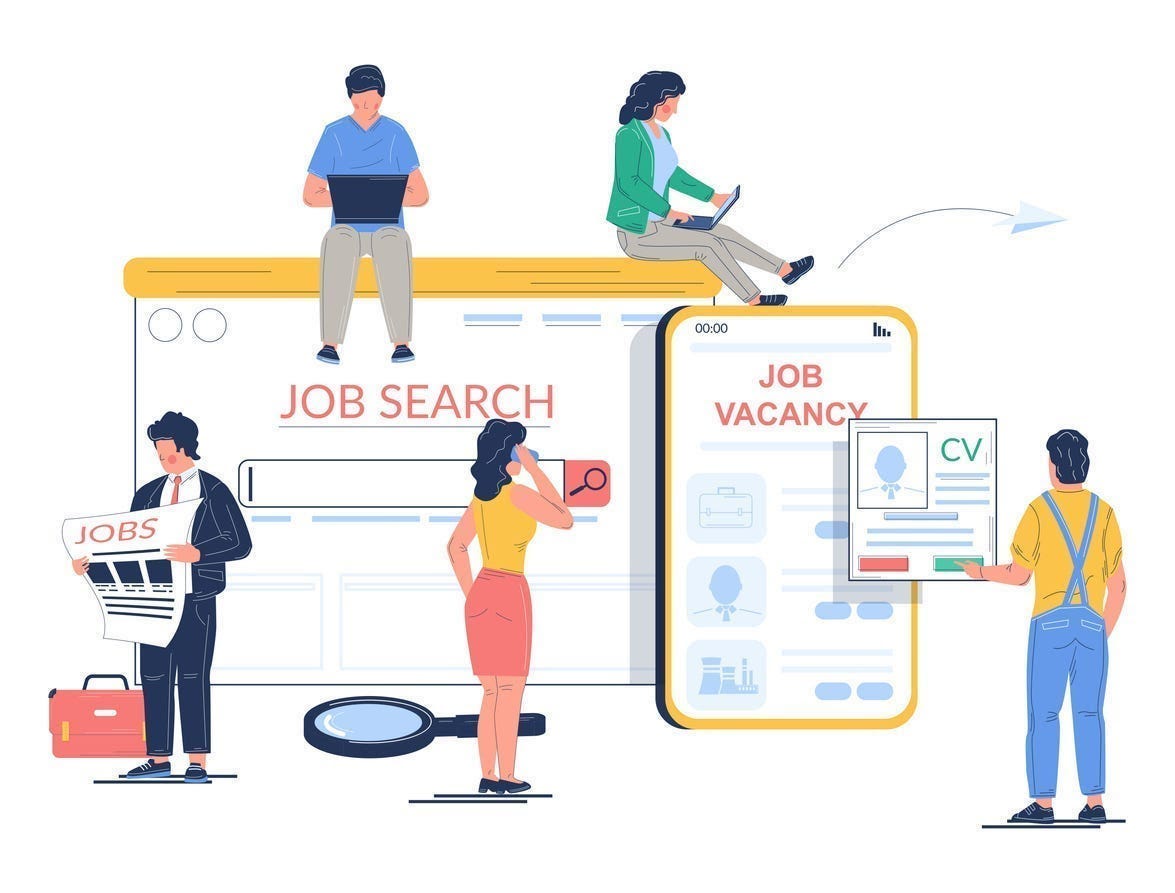Why Job Interviews Aren't as Scary as You Think
Chances are, you’ll go on many job interviews throughout your career. If you’re about to embark on your first interview, or if you’ve been out of the game for a while, it pays to brush up on the basics.
There’s so much buildup when it comes to job interviews. It’s totally normal to feel nervous in advance.
However, a job interview isn’t just an audition. It’s a chance to learn more about the job while showcasing your skills and experience. Your goal is to find out whether the job is right for you, which means listening and learning as much as possible. If the job is a fit, you’ll need to bring your A-Game, which often just means being yourself.
In the end, job interviews don’t have to be terrifying experiences. Here’s why.
It’s Not Like TV
If you’ve watched any workplace movies or TV shows or viewed any interviews-gone-wrong videos online, you probably have an image in mind of what a job interview looks like. Perhaps you envision a long conference table filled with scary people dressed in their best business apparel, and they’re grilling you within an inch of your life. Not only is this unlikely to happen in real life, but a job interview can take so many forms.
For example, an interview might take place in the manager’s office, an open space at the company, via video, or even a coffee shop. The interview might involve one person or several people at once, or you might spend the day talking to various people one-on-one. You may be the only candidate, or the hiring managers might be interviewing a group.
Typically, you’ll learn all these details in advance (and feel free to ask questions!). On the day of, you may be asked to wait in a waiting room before a receptionist ushers you into the interview space. However, even that experience isn’t necessarily guaranteed.
Many Interviews Are Virtual
These days, many interviews are over virtual platforms like Zoom. While virtual interviews have unique technical challenges, they eliminate the stress of commuting to the interview and making it on time. The job seeker has control over their own space, and in theory, you can be meditating right up until the interview starts.
Hiring Managers Want to Hire
It’s easy to feel, as a job seeker, like you have no power during an interview. However, hiring managers are also in need. Companies don’t hire people because they have extra money to throw around. They hire because they have a problem that needs solving.
Usually, they want you to be a good candidate so they don’t have to search anymore. So, in a way, they are on your side. Good hiring managers usually aren’t interested in putting you on the spot or making you feel bad. They simply want to know if you’re a good fit for the job.
You’re Doing the Interviewing, Too
A job interview works both ways. You are being interviewed, but you are also interviewing the interviewer. It’s critical that you feel like the job is a good fit and not just the other way around.
You have the power to ask questions about the things you care about, such as work hours, pay, benefits, dress code, work culture, diversity, and more. Interviewers should be transparent and happy to oblige. If they’re not, you might be facing a red flag and you may not want to work there.
There’s a Lot Beyond Your Control
Understand that no matter how thoroughly you prepare, no matter how much information you get from the HR person in advance, you’re probably going to have to roll with some punches on the day of the interview.
Maybe the representative said that you’d be meeting with one person, and you’re actually seeing three people. Maybe you’ll have to move to a different floor or another location or change your approach when it becomes clear that the hiring manager isn’t buying what you’re selling.
Just remember that a job interview is, at its heart, a meeting between two or more people who might work together someday.
You all have the same goal in mind: to see if you can have a happy and productive working relationship. You might get the job, or you might not — and either decision can take place for a myriad of mysterious reasons. Instead of fretting about it, just try to be present. That ease and confidence will serve you during the interview itself.
Also, it can be easy to make a mistake. Do your best to avoid the most common ones, but if it happens, learn from it and move on.
Being Yourself Is Your Best Bet
Given how much is beyond your control, your best bet is to just let go and be yourself. While you certainly want to put your best foot forward during job interviews (be on time, present, professional, prepared, and enthusiastic), hiring managers aren’t looking for a phony personality.
Hopefully, it’s calming to know that you can, and should, be yourself throughout the interview process rather than someone else.
Practice Makes Perfect
The more you go on job interviews, the less scary and stressful they will seem. Over time, you will also feel more power to ask questions and say no. Who knows, perhaps one day you will be conducting interviews, and you’ll look back and wonder why you felt nervous in those early days.
But in the meantime, be kind to yourself and remember that if a job interview doesn’t go well, there’s always the next one.
Tip: Need help getting ready? There are many free online interview practice tools that you can use to get ready to ace the interview.
Our Favorite Tools & Tips
SmartAsset Federal Paycheck Calculator: When you get a job offer, it’s helpful to know the bottom line. Use SmartAsset’s free paycheck calculator to get an estimate of what your take-home pay will be.
CareerOneStop Veteran and Military Transition Center: The Veteran Military and Transition Center provides information on employment, training, and financial help after military service. It also has resources for military spouses.
Pramp Interview Prep: Pramp users can sign up for free practice live interviews with peers. The site is geared toward programming and tech interviews. Interview coaching and mock interviews from experts at leading companies are available for a fee.
News & Noteworthy
How Much Money Do You Need To Be Successful?: Axios reports that the average American considers a salary of about $270,000 annually qualifies them as financially successful. However, that varies significantly between generations, ranging from 100k for older Boomers to 600k for Gen Z.
Should You Go to Coding Boot Camp?: Coding boot camps were once considered a viable way to transition into a tech career. As AI coding becomes more prevalent, the career path isn’t what it used to be. Here’s more on whether you should go to a boot camp or consider other options, or not, from the New York Times.
Who’s Using AI at Work? There may be fewer people than you’d expect. A Gallup survey reports that most people aren’t using AI on the job. Only 4% use it daily, 7% a few times a week, 8% a few times a month, 7% a few times a year, and 67% never use it on the job.
Sponsored by Remotive
When you’re looking for a 100% remote job, Remotive can expedite your search, and the basic version (2000+ jobs) is free. Learn more about how Remotive can accelerate your job search, and sign up for the Remotive Accelerator to access over 30,000 listings and the Slack community for a one-time fee.
Note: We may receive a small commission if you sign up using this link.






